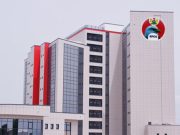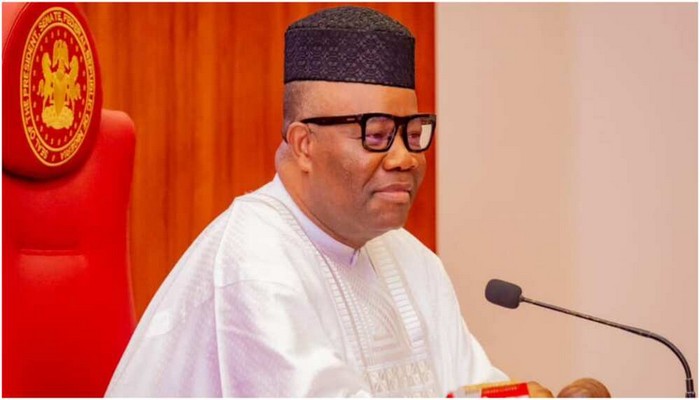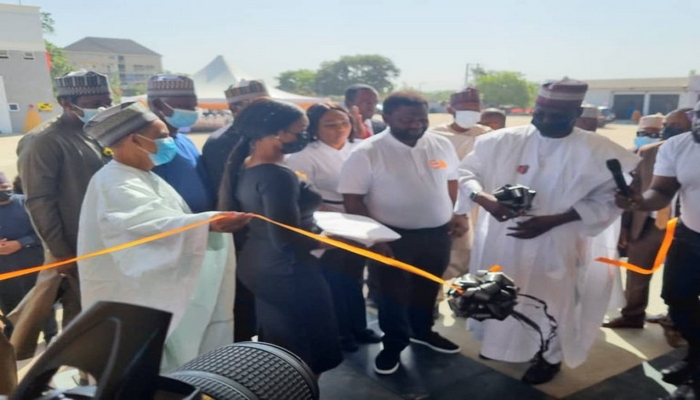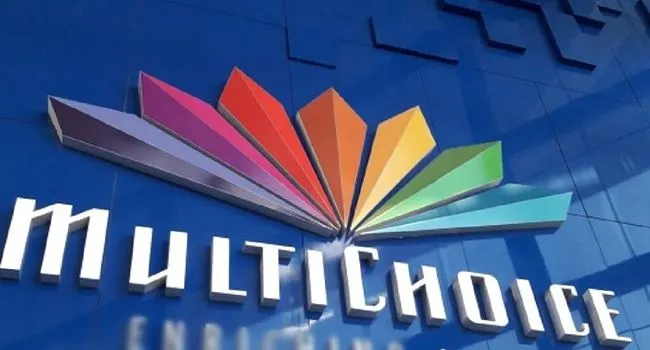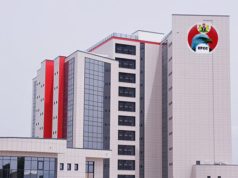Malam Mele Kyari, Group Managing Director of the Nigerian National Petroleum Company (NNPC) Limited, has attributed the high price of Liquefied Petroleum Gas (LPG) to the rising price of crude oil and its derivatives at the world market.
Kyari stated this at the inauguration of the Emadeb Energy Services Limited’s 120MT LPG Storage and Bottling Plant in Abuja.
He, however, assured Nigerians that the NNPC Limited was working round the clock to boost the supply of LPG to ensure a crash of the price.
The News Agency of Nigeria (NAN) reports that residents of Abuja and environs now spend between N8,500 and N9,500 to for a 12kg gas cylinders as aginst the former price of between N4,000 and N6,000.
“Two things are at play; one is the supply and the other is the international price of gas. It (price) moves with the price of every other petroleum product including crude oil and its derivatives. So it is a reflection of what is happening in the international market.
“What we are doing is to increase supply. Once supply is increased the prices will come down.”
The NNPC GMD said that the newly-inaugurated LPG plant was going to “reduce the cost of energy for Nigerians for the fact that LPG is cheaper than any other product you can think of, especially as cooking fuel.”
He commended Emadeb Energy Services Limited for building the LPG plant in Abuja, explaining that the project aligned with one of the steps the Federal Government had taken to provide gas for its citizenry.
He lauded the plan by the company to build similar plants in six different locations across the country within the next 12 to 18 months, adding that this was in line with President Muhammadu Buhari’s decade of gas initiative.
Kyari said: “We are aware that a lot of institutions and companies are doing this across the country. We are selecting this in line with Mr President’s objectives to make this the decade of gas.”
He also stated that one of the many ways investors could key into the decade of gas initiative was to have facilities like this for auto-gas conversion, and also to ensure that LPG is easily accessible to people.
Kyari also noted that the global energy transition had made the investment climate very ripe for gas even as he assured those investing in LPG project that the NNPC would guarantee supply of gas to their facilities.
“We know that the investment climate is very ripe for auto-gas and auto fuel, especially in terms of LPG as a transition fuel globally. So, we know that this is a big market for Nigerian companies and this is one of the great companies that we have around.
“As NNPC, we will come in and we will guarantee supply. That is very important for us as a business. As you are aware, we are NNPC Limited in Nigeria and we also have to make money for Nigeria. We will be there in the upstream to provide the gas.”
Chief Executive Officer of Emadeb Energy Services Ltd, Mr Debo Olujimi, said that although the capacity of the plant was currently 120MT, plans were afoot to expand it to 240MT in the next 18 months.
He described the business of gas infrastructure as capital intensive, and urged the federal government to encourage private investors to get value for their money.
“There is a lot of value in gas. Everybody knows that gas is the way forward and the way it is, there is much gas with the decade of gas and with over two trillion cubic feet of gas reserve.
“We are about to start developing our asset with about 200 billion cubic feet of gas at the Ibom field. We intend to convert some of the gas processed out of that facility to support the local market.
“It is capital intensive doing gas infrastructure and government needs to encourage private investors so that private people can come in with funds and equipment to get the value.
“In the electricity sector today, the major issues are the shortage of gas and the pricing of gas; those are things that the government has to help us to look at.”
He disclosed that shortage of foreign exchange was also a major challenge in the business. He, however, pointed out that the company had the support of the NNPC and it could produce its gas locally.
The company’s CEO noted that besides supporting the local LPG market, the Emadeb Group would also support gas for power.
According to him, the country’s population would have exceeded 300million “in the next 10 years. It is estimated that 60 per cent of Nigerians will be using LPG.”
He said he was fulfilled that Emadeb group “is bringing in clean energy especially to the market and actually to the Abuja market. The environment here is where Abuja lives. The vast population in Abuja is within this vicinity (Lokogoma, Gaduwa, Apo, etc) and that is why we have invested this much here.
“For us, this a model that we want to build in the downstream industry. Everybody knows the importance of cooking. We all eat food and we have decided to do this as a model for clean energy in Abuja.
“That is why we are here today; we have looked at that when we conceptualized this investment. It is 120 tonnes LPG storage.
“We have looked at this entire neighbourhood where we have about 56 estates with a minimum of 1000 households living on each estate. We looked at this that it is a good business in terms of return on investment and clean energy.
“Everybody knows the importance of LPG and we want to, in every way, ensure clean environment in terms of retailing LPG and at the same time being able to serve the public in a very conducive environment and this is why we have conceptualized this.
“This project (plant) only serves barely less than two-thirds of the people in this environment-Lokogoma, Gaduwa, Apo Districts and all the estates around here. We decided to say let us take a model here and see how that works.”
He thanked the NNPC GMD for the opportunity that had been given, stating that “we want to see how we can get domestication of gas with the so much resources that we have on the ground in order to bring it up to the market locally.
“So, we don’t have to export all our handlings and so that Nigerian masses will be able to buy cheap and better LPG in the market.
“This is our model and within the next year and a half, we intend doing this in six locations across the country.”




